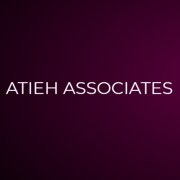Best Structured Finance Lawyers in Tehran
Share your needs with us, get contacted by law firms.
Free. Takes 2 min.
List of the best lawyers in Tehran, Iran
About Structured Finance Law in Tehran, Iran
Structured finance refers to sophisticated financial instruments that facilitate complex financing needs, often involving pooling of financial assets and the issuance of securities. In Tehran, Iran, structured finance transactions typically include securitization, issuance of sukuk (Islamic bonds), project finance, and asset-backed securities. These structures are designed to optimize funding, manage risks, and comply with various legal and Shariah (Islamic law) requirements unique to the financial landscape of Iran. The rapid development of Iran's capital markets, combined with local regulatory frameworks, makes this a specialized area requiring expert legal guidance.
Why You May Need a Lawyer
Engaging in structured finance often involves intricate legal documentation, regulatory compliance, and in some cases, cross-border considerations. You may need a lawyer if:
- You are structuring or arranging a securitization or sukuk issuance.
- Your business wants to use asset-backed financing or project finance structures.
- You are an investor seeking to understand or participate in structured finance products.
- Your company is involved in refinancing, debt restructuring, or risk management transactions.
- You want to ensure compliance with Iran's capital market regulations and Islamic finance requirements.
- You encounter disputes or need enforcement related to structured finance agreements.
A lawyer can help by drafting contracts, conducting due diligence, ensuring regulatory compliance, and representing in negotiations or disputes.
Local Laws Overview
Iran’s structured finance landscape is shaped by both civil law and Islamic finance principles. The main bodies of law affecting structured finance include:
- The Islamic Republic of Iran’s Banking Laws: Prohibit charging and payment of interest, requiring Shariah-compliant financial products like sukuk.
- Capital Market Law: Administered by the Securities and Exchange Organization of Iran (SEO), this law regulates securities offerings, requiring disclosure and compliance with local listing requirements.
- Executive Regulations on Asset-Backed Securities and Sukuk: These lay down the rules for issuance, administration, and rights of investors in structured products.
- Taxation: Certain tax exemptions apply to securities issued through listed public offerings, but these require strict compliance with law.
- Enforcement and Dispute Resolution: Contracts must adhere to Iranian law, and disputes are typically resolved in local courts or via arbitration under Iranian law.
Legal advice is crucial to navigate local requirements, align transactions with market practices in Tehran, and ensure both civil and Shariah compliance.
Frequently Asked Questions
What is structured finance?
Structured finance involves advanced financial arrangements such as securitization, sukuk, and other products that enable efficient capital raising while managing risk, often involving multiple parties and complex legal arrangements.
Is structured finance legal in Iran?
Yes, structured finance is legal, but it must comply with national laws and Shariah principles. Sukuk and certain asset-backed securities are common examples of structured products legally accepted in Iran.
Can foreign investors participate in structured finance deals in Tehran?
Foreign participation is possible but subject to regulations, including limitations on ownership, currency controls, and requirements for Shariah-compliance. Legal advice is essential to ensure lawful participation.
What types of structures are common in Tehran’s finance market?
Common structures include sukuk (especially ijara and murabaha types), project financing, asset-backed securities, and hybrid instruments, all adapted to comply with Islamic financial principles.
What government body oversees structured finance in Iran?
The Securities and Exchange Organization (SEO) of Iran is the primary regulator for capital market activities, including structured finance products.
How does Shariah law affect structured finance transactions?
Shariah law prohibits interest and speculation, so transactions must be structured as profit-and-loss sharing or asset-based arrangements. Every product must also receive approval from a Shariah supervisory board.
What documents are needed for a sukuk or asset-backed issuance?
Common documents include offering circulars, trust deeds, asset sale and purchase agreements, servicing agreements, and Shariah board approvals. Local law often requires additional documentation for regulatory approval.
Are there any tax advantages for structured finance instruments?
In some cases, securitized products or sukuk may receive tax benefits if they comply with the requirements of the Capital Market Law and are registered with SEO.
What happens if there is a dispute between parties?
Disputes are typically resolved under Iranian civil law, often in Tehran courts or, if agreed, through arbitration under Iranian arbitration centers. Shariah compliance is also considered in dispute resolution.
How can a lawyer help with structured finance transactions?
A lawyer provides legal structuring advice, drafts and reviews agreements to comply with both local and Islamic law, performs due diligence, obtains regulatory approvals, and represents clients in any disputes or negotiations.
Additional Resources
Several resources and organizations can assist individuals seeking information or legal advice about structured finance in Tehran:
- Securities and Exchange Organization (SEO): The main regulator for all securities and capital market activities in Iran.
- Central Bank of Iran (CBI): Oversees banking regulations and ensures compliance with Islamic financial laws.
- Iranian Association of Certified Public Accountants: Offers guidance on financial reporting and accounting standards, which is relevant for structured products.
- Tehran Chamber of Commerce, Industries, Mines and Agriculture: Provides information and resources for businesses involved in financial transactions.
- Local law firms with finance and capital market expertise: Many have specialized departments for structured finance and Islamic banking law.
Next Steps
If you are considering any structured finance transaction in Tehran, here is how you should proceed:
- Assess your financial needs and clarify the objectives of your structured finance transaction.
- Gather all available documentation related to your assets, project, or business operations.
- Seek out a legal professional or firm in Tehran with experience in both local laws and Islamic finance.
- Schedule a consultation to understand your options, regulatory requirements, and potential risks.
- Work with your lawyer to ensure all documents are prepared and compliant with Iranian and Shariah law.
- Proceed with regulatory submissions, disclosures, and securing all necessary approvals.
- Maintain ongoing communication with your legal team to stay updated on legal and regulatory changes affecting structured finance in Iran.
Professional legal support is vital for the successful execution of structured finance transactions in Tehran, ensuring both compliance and the protection of your interests.
Lawzana helps you find the best lawyers and law firms in Tehran through a curated and pre-screened list of qualified legal professionals. Our platform offers rankings and detailed profiles of attorneys and law firms, allowing you to compare based on practice areas, including Structured Finance, experience, and client feedback.
Each profile includes a description of the firm's areas of practice, client reviews, team members and partners, year of establishment, spoken languages, office locations, contact information, social media presence, and any published articles or resources. Most firms on our platform speak English and are experienced in both local and international legal matters.
Get a quote from top-rated law firms in Tehran, Iran — quickly, securely, and without unnecessary hassle.
Disclaimer:
The information provided on this page is for general informational purposes only and does not constitute legal advice. While we strive to ensure the accuracy and relevance of the content, legal information may change over time, and interpretations of the law can vary. You should always consult with a qualified legal professional for advice specific to your situation.
We disclaim all liability for actions taken or not taken based on the content of this page. If you believe any information is incorrect or outdated, please contact us, and we will review and update it where appropriate.
















